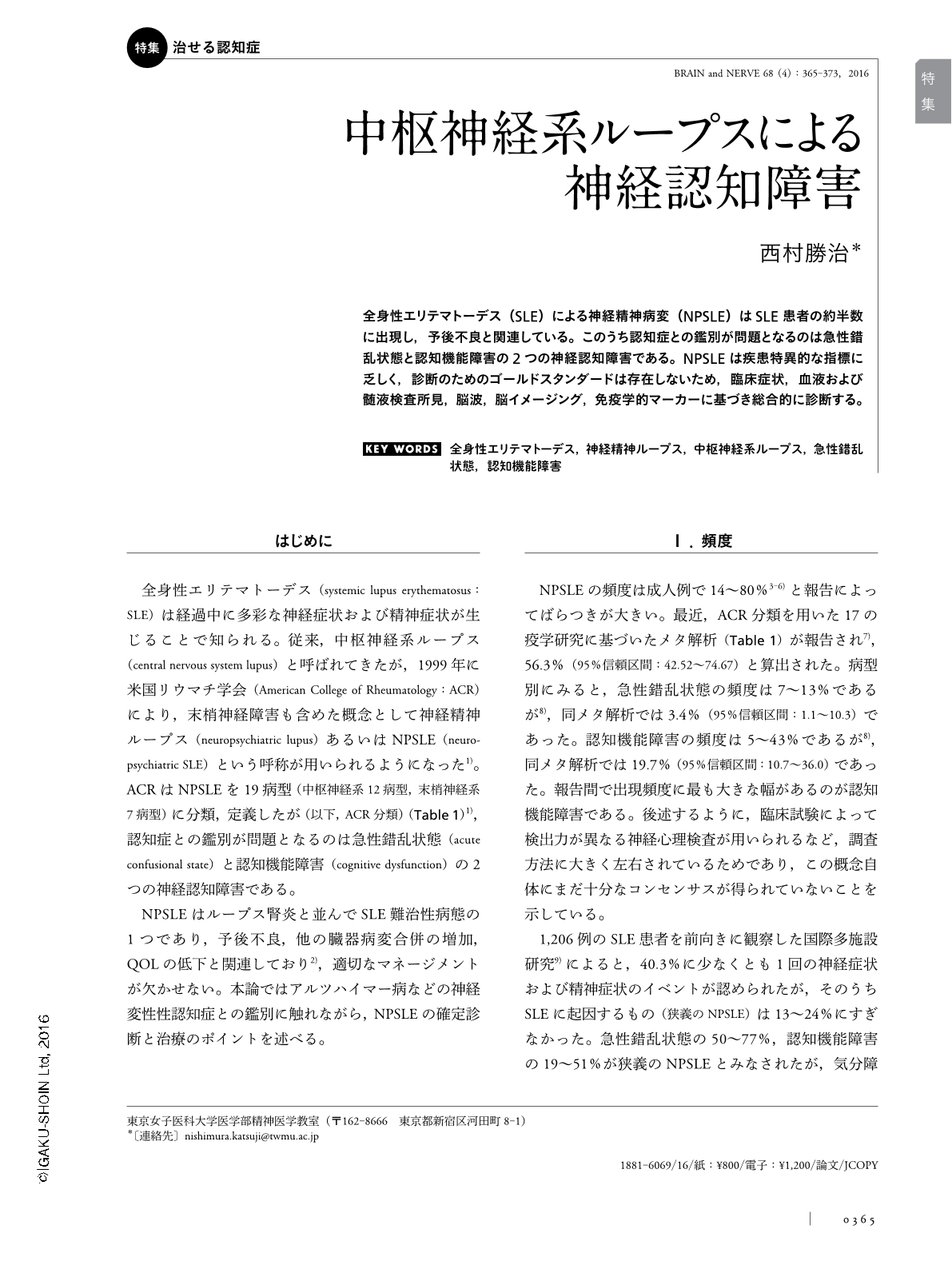Japanese
English
- 有料閲覧
- Abstract 文献概要
- 1ページ目 Look Inside
- 参考文献 Reference
全身性エリテマトーデス(SLE)による神経精神病変(NPSLE)はSLE患者の約半数に出現し,予後不良と関連している。このうち認知症との鑑別が問題となるのは急性錯乱状態と認知機能障害の2つの神経認知障害である。NPSLEは疾患特異的な指標に乏しく,診断のためのゴールドスタンダードは存在しないため,臨床症状,血液および髄液検査所見,脳波,脳イメージング,免疫学的マーカーに基づき総合的に診断する。
Abstract
Systemic lupus erythematosus (SLE) is a chronic autoimmune disease involving multiple biological systems that has primary and secondary effects on the central nervous system. Neuropsychiatric manifestations of SLE (NPSLE) are common and are associated with a worse prognosis, more cumulative organ damage, and decreased quality of life. The neurocognitive disorders of NPSLE include an acute confusional state and cognitive dysfunction. The pathogenic mechanisms underlying NPSLE are likely to be multifactorial and may involve vasculopathy of predominantly small intracranial blood vessels, autoantibody production, and intrathecal production of proinflammatory cytokines. No disease-specific diagnostic markers or diagnostic gold standard is known for NPSLE. Thus, the first step of the diagnostic work-up is to exclude non-SLE-related conditions. The correct diagnosis is derived from careful analysis of the clinical, laboratory, and imaging data on a case-by-case basis. This article reviews the current literature, especially on the neurocognitive disorders of NPSLE.

Copyright © 2016, Igaku-Shoin Ltd. All rights reserved.


